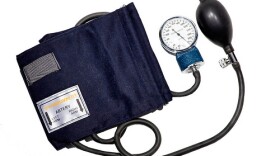A recent CDC study found seven out of 10 U.S. adults, ages 65 and older, have hypertension, but nearly half do not have it under control. A hypertension specialist at UT Southwestern Medical Center says the reasons go further than just forgetting to take needed medication.
Highlights from the interview with Dr. Shawna Nesbitt, an Associate Professor in Internal Medicine-Hypertension at U-T Southwestern Medical Center:
The CDC report says about five million Medicare enrollees aren’t taking their blood pressure medication as directed. Why?
"Access to medications. How much do they cost? Can they get the medicine? Can they afford it? But the problems with seniors and medication are much larger than that. Can you get to the pharmacy to pick up the medicine? Do you understand how you should be taking the medicines? Can you read the labels on the medicines? And do you understand how to take them every day? Some medicines have side effects that people don’t like. And once they have the side effect, they don’t want to take the medicine. One of things I face with many elderly patients is understanding the concept that hypertension is a chronic disease and isn’t going away. It’s not like an infection that you treat for 10 days and then it’s gone. It’s really hard because it’s something you don’t feel until there’s a stroke or you have a heart attack.”
The same report also noted the number of those who don’t take the medication is higher among racial or ethnic groups, and that rates or higher in southern U.S. states, Puerto Rico and the Virgin Islands:
“Cultural perceptions of medicines have an incredible effect on how we interact with health care professionals. We grow up with these perceptions. We think about health from the perception of what we think we should be doing or not. That comes from not necessarily from what you learn in the doctor’s office. It may come from something you learned from you grandmother or from home.”
How do you combat such perceptions:
“Education, on all sides of this. Understanding how people think about medication, how they think about blood pressure, not just shoving down their throats what they have to do, I think they would change a lot about how people would behave if we were to approach them from where they stand right now. Think about them differently. We put them all in boxes that are the same.”
Information about blood pressure we all need to know:
“One third of the entire U.S. adult population has hypertension. You have to be screened to know it, for the most part. Ideal numbers would be 120/80. If we talk about what goals do we have, right now, we say 140/90 or less.”
To aim for those numbers:
“Low salt diet. Watching your weight. Alcohol, (no more than) one to two drinks per day. And we need good sleep. During the right kind of sleep, your blood pressure should down ten to 20 percent. There’s a genetic component to this. You have to be cognizant of looking at your own family history and do the best you can for yourself, and there are right things to do, and exercise is an important part of that.”
What family and friends can do to aid seniors not taking (blood pressure) medication:
“Some of that involves creating ways for them to do what they should be doing. On their cell phones, set the alarm so they remember when its time to take medication. Give them a pill dispenser to know if they took it on Tuesday, Wednesday and Thursday. Help them get to the doctor when they need to get there. Those things are very simple, very inexpensive, and they really help seniors to do this right.”
For more information:




